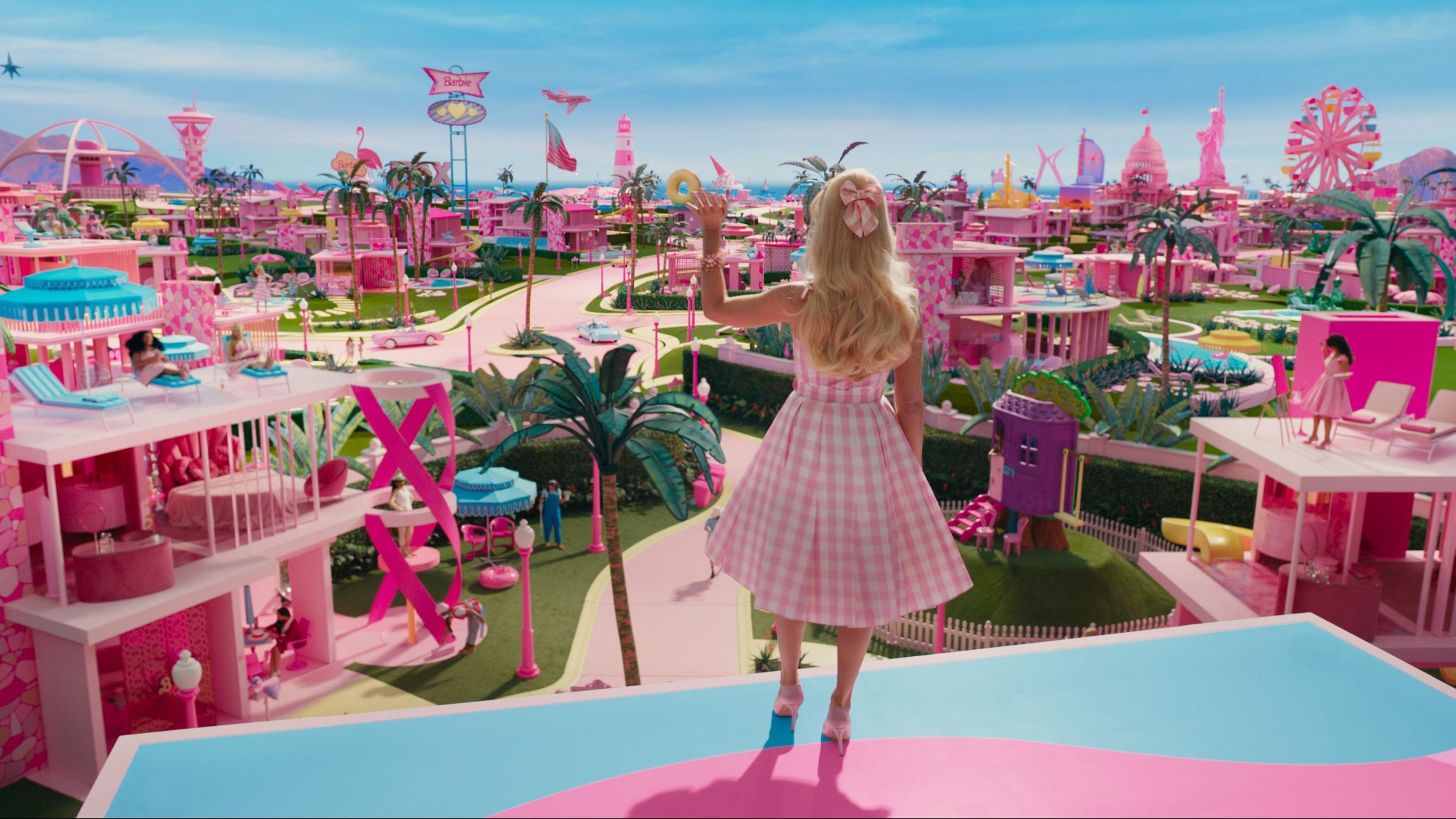Like many college girls, I saw Barbie on its opening weekend. My friends and I thrifted glamorous, all-pink outfits and arrived decked out for the premiere.
As the lights dimmed, I looked at my beautiful friends with one terrifying realization: I’m at the best or worst age in my life to watch this movie, and I’m about to find out which one it is.
Every piece of that realization was intentionally pieced together by director Greta Gerwig.
I just turned 20. I am officially halfway through college. Growing up is no longer a far-fetched idea – it’s a reality, and one I can’t avoid any longer.
The very nature of Barbie is beauty and perfection with stunning outfits, hair and world design. The movie felt the same way with an incredible marketing campaign that romanticized every aspect of the film. Not to mention the movie’s soundtrack, which featured one incredible female artist after the next.
But after constructing the perfect Barbie world, Gerwig took it all away. Parading viewers traveled through the heart-wrenching journey of womanhood; a rude awakening from the movie’s perfect pink aesthetics. It’s that type of daunting, forced perfection that Barbie captures so well.
Gerwig raises questions: is there a time when perfect is too perfect? And if so, what are the dangers of that overwhelming perfection? Is the foundation of womanhood – that desire for perfection – flawed at its core?
{Kizik Irvine Review: Never struggle to put on shoes again}
Barbie’s adventure to the real world is reminiscent of the horrifying realization of facing a possibly imperfect reality. It’s easier to close our eyes and ignore the pain than face it head-on, just as Barbie tries to do before she’s told by Weird Barbie that she doesn’t actually have a choice.
Barbie and Ken visit Los Angeles on their own, where Barbie immediately feels uncomfortable by the attention she’s receiving – cat-calling is so not welcome in Barbie Land. Ken loves it, and upon learning about the patriarchy, his worldview flips. Ken spends his time enjoying the respect he receives for being a man, while Barbie searches for the real girl who played with her.
Gloria and Sasha are a mother-daughter duo with a strained relationship in the real world – Alexa, play “Never Grow Up (Taylor’s Version).” What was once a tight bond broke as Sasha grew up, and the cold shoulder Sasha gives her mother feels like a slap in the face. What Gerwig captures beautifully is the effect left on a mother, and how isolating it can be to watch a daughter grow up.
Barbie soon returns with Gloria and Sasha to Barbieland and is shocked to find that Ken introduced the others to his misunderstood version of the patriarchy. He convinced the Kens to rule Barbie Land while the Barbies were brainwashed into catering to the Kens’ every desire.
Sasha and Gloria’s bond is tightened as the two gain more understanding for one another throughout their Barbie journey. It’s heartwarming to watch the standoffish Sasha melt and embrace her mother’s love again.
{Freshman year taught me that online image isn’t everything}
After Barbie Land is restored, Ruth Handler, the inventor of Barbie, tells Barbie, “we mothers stand still so our daughters can look back to see how far they’ve come.”
This tear-jerker of a line just makes me want to hug every mother in the world. To add fuel to the fire, “Closer to Fine” by Indigo Girls is Barbie’s go-to roadtrip song, which my mom and I sing in the car together constantly.
Barbie now has to face her own future and officially decide if she’ll live as a human being in an imperfect world. A montage of home-video footage of women follows, all of whom are friends and family of the cast and crew. Billie Eilish’s “What Was I Made For?” plays in the background and is the perfect choice for a gut-wrenching, emotional and reflective moment.
Barbie is a cute, cheesy representation of womanhood’s most universally personal traits: insecurity, loneliness and fear. It’s not a perfect depiction of feminism and can appear a little white savior-y, but it does an excellent job of connecting with its audience of all ages.
For me, the biggest takeaway of this movie was sympathy for all women. What the movie’s stars repeated during Barbie’s press tour was that this film was “made for everyone,” and that stands true. Barbie captures how women are a lot more alike than we may think, so maybe we all feel a personal connection to it.
When my friends and I left the theater teary eyed and were told by a little girl that we looked like Barbies, it actually did feel like it. One can only be Barbie if we’re all Barbie, and Gerwig’s masterpiece serves as a reminder that maybe entering womanhood doesn’t have to feel so lonely. Instead, it can be a hauntingly universal experience.



